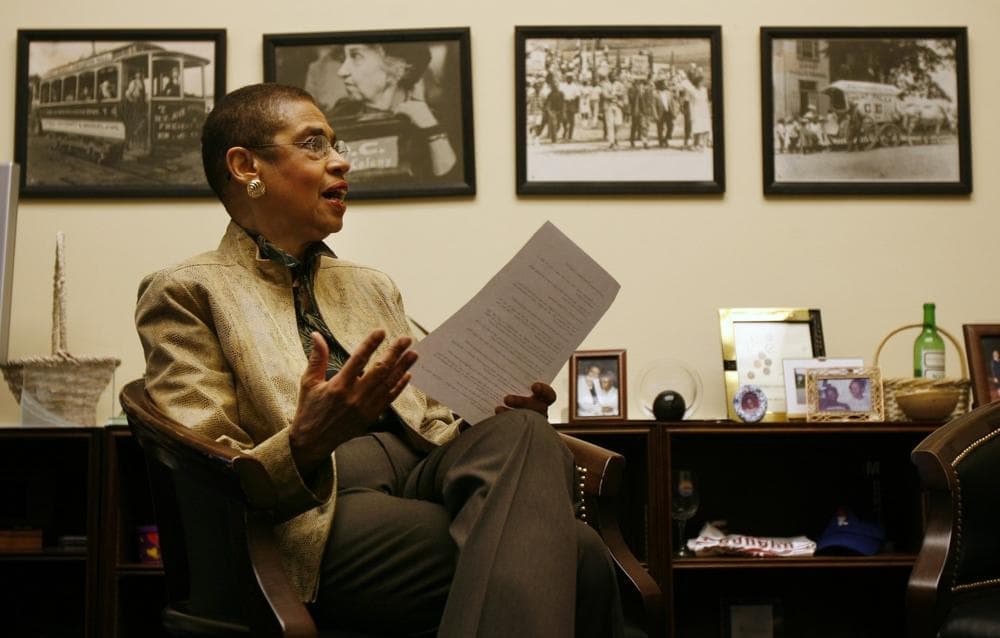Advertisement
Congresswoman Recalls March On Washington

In 1963, Eleanor Holmes Norton was a young civil rights activist who helped organize the March on Washington.
Today she is the non-voting Congresswoman who represents the District of Columbia.
The reason the feeling was so palpable and remained with you is that it was a first-of-its-kind feeling.
Cong. Eleanor Holmes Norton
She will be at the 50th anniversary celebration of the March on Washington tomorrow, when the nation will celebrate the legacy of the March and Dr. Martin Luther King, Jr.’s “I Have a Dream” speech.
She recalled her exhilaration when leaders of the civil rights movement announced that they were actually organizing a march on Washington to demand civil rights for African-Americans. Key among the organizers' demands was equal access to employment.
“For me, this was what I had longed to hear,” Norton told Here & Now. “There had been 10 years of movement in the South, but there were no remedies in the South. The only remedy was in Washington.”
Even 50 years later, Norton recalls being at the March on Washington vividly.
[sidebar title="Cong. Norton Recommends" width="280" align="right"]
[/sidebar]
“The reason the feeling was so palpable and remained with you is that it was a first-of-its-kind feeling,” Norton said. “You believed change would happen because you saw those people come.”
Advertisement
Among the results of the March on Washington was the creation of the Equal Employment Opportunities Commission, which Norton chaired from 1977 to 1981.
Norton says that the real object of celebrating the 50th anniversary of the March on Washington is about the present.
“I am not among those who engage in nostalgia because I think that locks you into a moment in time without thinking about where you are what needs to be done now,” Norton said. “Marches are to get change of the kind that’s needed now.”
Guest
- Eleanor Holmes Norton, Congresswoman for the District of Columbia. She tweets @EleanorNorton.
This segment aired on August 27, 2013.